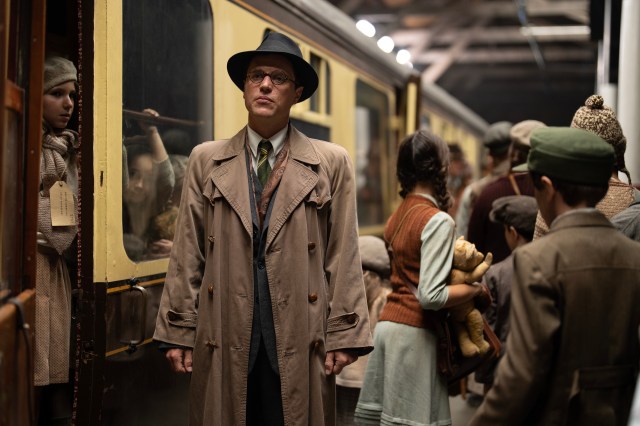Uncovering a Hero’s Journey
“One Life,” a film by James Hawes, portrays a lesser-known but profoundly hopeful aspect of World War II, focusing on the rescue of 669 Czechoslovakian children by Sir Nicholas Winton, a British humanitarian. The story unfolds through the life of Winton, played by Sir Anthony Hopkins, as he revisits his forgotten past through an old scrapbook that reveals his courageous deeds. The film is based on the biography by Winton’s daughter, Barbara Winton, detailing her father’s incredible acts during a time of dire crisis.
A Cinematic Tribute to Sir Nicholas Winton’s Legacy
The narrative of “One Life” is set against two timelines, connecting Winton’s past and present as he reflects on his actions that changed the lives of hundreds of children. As a young man, portrayed by Johnny Flynn, Winton is depicted as a determined and compassionate figure who leaves his banking job to save children from the horrors of the Nazi occupation. In his later years, Winton grapples with the memories of those he saved, embodying a quiet hero whose life exemplifies the profound impact of kindness and bravery.
Emotional Resonance and Cinematic Craft
Directed with sensitivity and a focus on the emotional journey rather than the historical details, “One Life” captivates the audience with its deep human connections and the quiet introspection of its protagonist. The film showcases how ordinary people can achieve extraordinary things through compassion and determination. It serves as a poignant reminder of the ripple effects of one person’s actions, emphasizing that heroism lies in the simple act of helping others, a message that resonates powerfully through Anthony Hopkins’s compelling performance.
